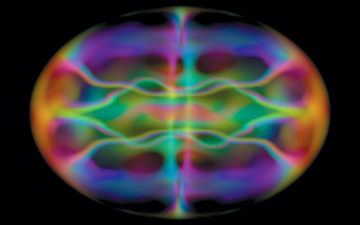Sabine Hossenfelder in Aeon:
 After you die, your body’s atoms will disperse and find new venues, making their way into oceans, trees and other bodies. But according to the laws of quantum mechanics, all of the information about your body’s build and function will prevail. The relations between the atoms, the uncountable particulars that made you you, will remain forever preserved, albeit in unrecognisably scrambled form – lost in practice, but immortal in principle.
After you die, your body’s atoms will disperse and find new venues, making their way into oceans, trees and other bodies. But according to the laws of quantum mechanics, all of the information about your body’s build and function will prevail. The relations between the atoms, the uncountable particulars that made you you, will remain forever preserved, albeit in unrecognisably scrambled form – lost in practice, but immortal in principle.
There is only one apparent exception to this reassuring concept: according to our current physical understanding, information cannot survive an encounter with a black hole. Forty years ago, Stephen Hawking demonstrated that black holes destroy information for good. Whatever falls into a black hole disappears from the rest of the Universe. It eventually reemerges in a wind of particles – ‘Hawking radiation’ – that leaks away from the event horizon, the black hole’s outer physical boundary. In this way, black holes slowly evaporate, but the process erases all knowledge about the black hole’s formation. The radiation merely carries data for the total mass, charge and angular momentum of the matter that collapsed; every other detail about anything that fell into the black hole is irretrievably lost.
Hawking’s discovery of black-hole evaporation has presented theoretical physicists with a huge conundrum: general relativity says that black holes must destroy information; quantum mechanics says it cannot happen because information must live on eternally.
More here.
